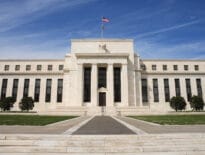Editor’s Note: Business organizations urged Beacon Hill legislators Thursday afternoon to pause approval of the new property tax structure raising rates on commercial properties in Boston following the release of new assessment data.
A Boston senator delayed action on a controversial home rule petition for the second time this week, pushing consideration off after new data emerged about the city’s property tax outlook.
Sen. Nick Collins, a South Boston Democrat, used a parliamentary maneuver Thursday to prevent action on the House-approved plan Mayor Michelle Wu has been seeking for months to temporarily shift a greater burden of property taxes from residential owners to commercial owners.
Collins said on the Senate floor that lawmakers and constituents need more time to process the latest property tax valuation data, which the Department of Revenue certified Wednesday, and how it affects debate about the proposal.
It was the second time this week that Collins punted any action on the proposal, which Wu and her deputies have been arguing is time-sensitive to prevent residents from being hit with unnecessarily large property tax bills.
Based on the newly certified data, Wu told senators her team now projects the average residential property tax bill would increase 10.5 percent year-over-year without action on her home-rule petition. That’s a decrease from previous estimates, which suggested a “potential worst case scenario” of a 14 percent annual increase for the average single-family home.
With the home rule petition in place, the average residential property-owner would face a 5.2 percent annual increase in property taxes if the city deployed the maximum possible shift, Wu said.
Opponents of the plan spent the hours before the Senate gaveled in buzzing about whether action is still necessary with the latest figures, suggesting that a 10.5 percent increase is close enough to recent averages. Wu argued the opposite.
“Without this legislation, the share of Boston’s tax levy borne by residential taxpayers would jump from 40% to 44% — the biggest single year increase since 2007,” Wu wrote in a three-page letter to senators. “Moreover, as housing costs have risen across the region and the city over the last several years, it is even greater of a threat for Boston residents to bear what would be the second-highest tax increase over the last decade if forced to pay the 10.5% jump without legislation. Rental listing prices have increased nearly 25% between 2019-2023 in Boston, and home sale prices have increased by 13%.”
The updated estimates will likely factor into debate on the Senate floor. When the House-approved bill first emerged for Senate action on Monday, Collins used the same parliamentary maneuver to delay consideration, raising concerns about making a decision before final tax classification numbers were available.







